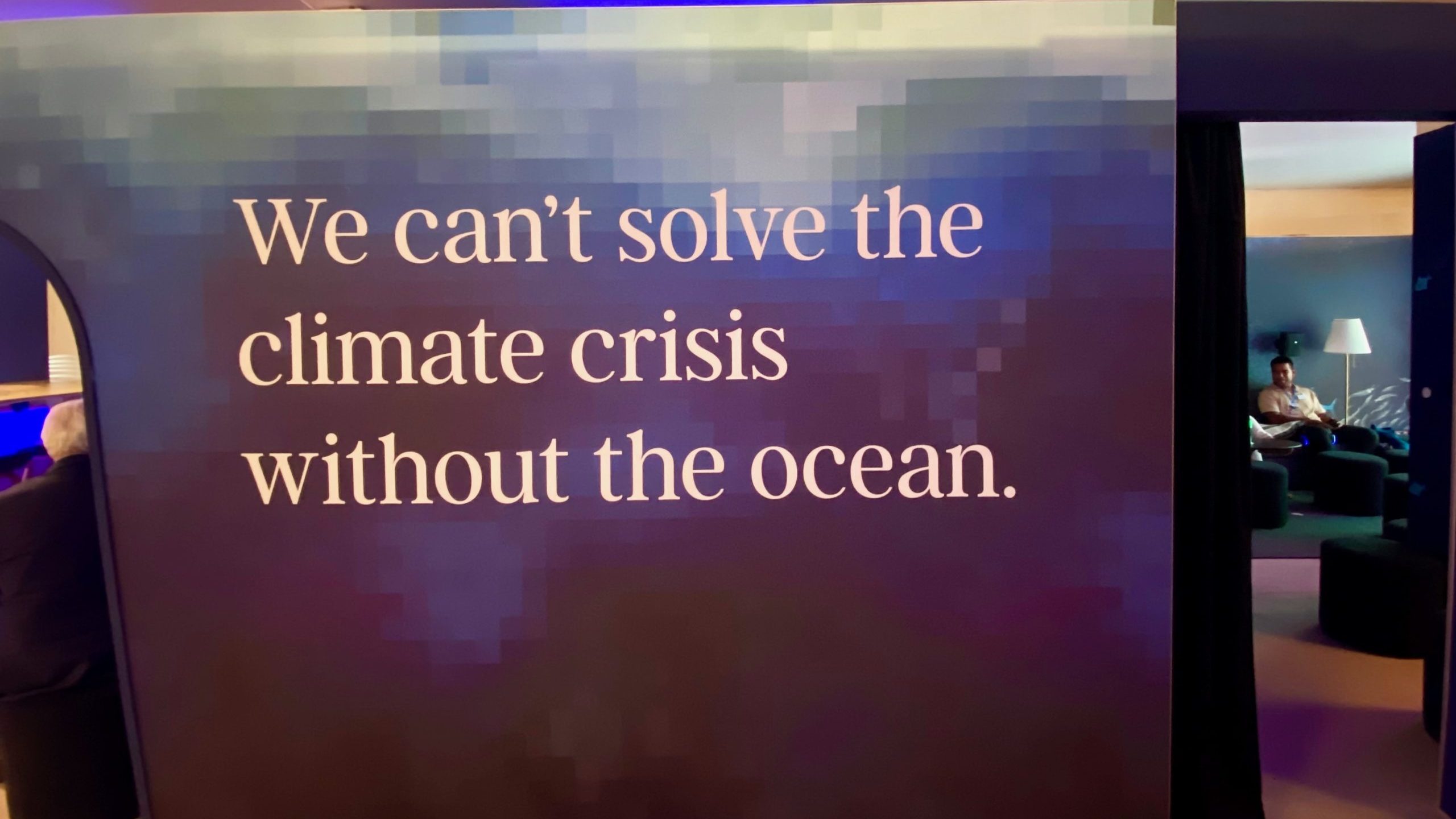
Ocean Action Day at COP28
By Natalie Nowatzke, J.D. Candidate 2024, University of Maine School of Law
December 9, 2023
Today was Ocean Action Day at COP28, recognizing the importance of the ocean in addressing the climate crisis. Rising greenhouse gas emissions are directly linked to severe consequences for the ocean, including sea level rise, marine heatwaves, loss of biodiversity, and acidification of the ocean. These changes alone are devastating for the health of the ocean, but the impacts do not stop there. The continued decline of the health of the ocean will particularly impact coastal communities across the world.
Prior to everyone convening in Dubai, the COP28 Dubai Ocean Declaration was published with 124 signatories. This Declaration specifically called “on world leaders to support and foster efforts to greatly expand and improve ocean observations worldwide to provide a basis for understanding ongoing natural and anthropogenic change and for planning mitigation and adaptation strategies, with a particular emphasis on building capacity in developing nations and on expanding coverage of under-observed regions.”
The week two University of Maine delegation started Oceans Action Day as we start most, at the Research and Independent Non-Governmental Organizations (RINGO) morning meeting. We had the opportunity to hear from Dr. Miriah Kelly, Assistant Professor of Environmental Science at Southern Connecticut State University and the leader of the RINGO Ocean Group. She spoke briefly about the many ocean-climate nexus issues, as well as the COP28 Dubai Ocean Declaration. Dr. Kelly noted that following this Declaration, this key question remains: “How do we do this justly, fairly, and equitably?”
I also had the opportunity to attend an event titled “Taking Stock of Climate Action: Land Use & Ocean and Coastal Zones” which consisted of both individual speeches and two panels. The first panel was titled the “Hiking Panel” and focused on land based actions, and the second panel was the “Surfing Panel,” focusing on ocean based actions. These panels were tied together with common themes, as well as the opening statement of H.E. Razan Al Mubarak. She noted that scientists and climate experts “often operate in isolation. However, when considering nature, we are all dealing with a single, interconnected nature.” One especially important theme throughout both panels focused on the need for inclusion of and the placement of trust in Indigenous Peoples from the very beginning of processes.
Looking to the near end of COP28, I am eager to see final documents and hope for substantial language acknowledging and addressing the ocean. All positive climate action ultimately benefits the ocean, but it is essential that the ocean begins to receive the space and recognition it deserves throughout climate action of all levels.

